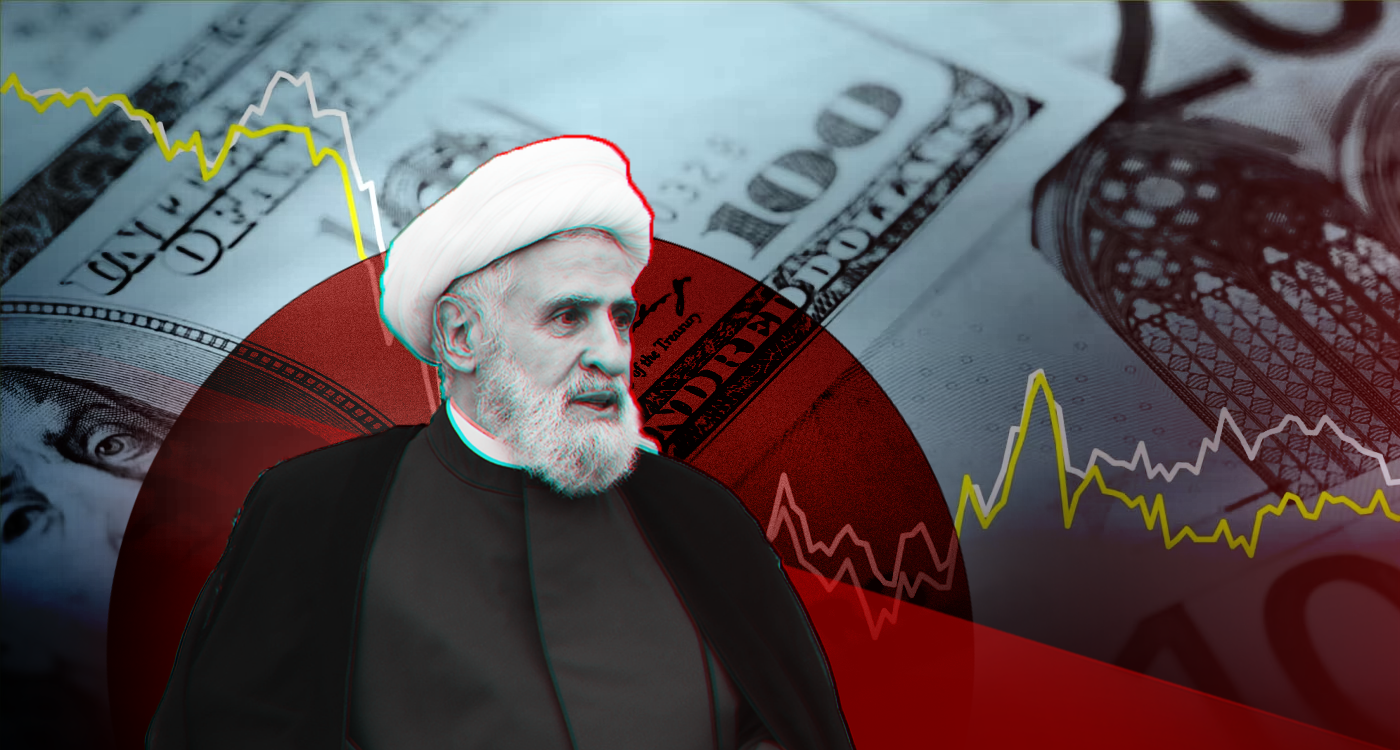
One of Hezbollah’s most pressing challenges, beyond its ongoing military decline and Israel’s persistent targeting of its depots and stockpiles, is its financial crisis. The depletion of resources has left the group unable to engage with its population as it once did to sustain its alternative economy.
A clear example is Sheikh Naim Qassem’s recent criticism of the Governor of the Central Bank of Lebanon (BDL), accusing him of following US directives. While the coordination of a country’s economy and currency typically involves direct interaction with Wall Street and the US administration, Qassem is not accustomed to working through conventional channels.
After the Syrian regime suffered a major setback and a new government took power, Hezbollah became increasingly isolated as the land crossings it relied on for transporting weapons and funds were closed. For Hezbollah, money is as crucial as arms, sustaining the institutions – financial, educational, healthcare and social – that underpin loyalty in its base, pay fighters and support victims’ families.
Funding also supports the Qard al-Hasan system, Hezbollah’s de facto central bank.
The disruption of these funding routes has also cut off channels previously used to traffic drugs and other illegal goods, further weakening its financial network. The fall of the Syrian regime thus severely restricted Hezbollah’s import and export pathways.
Recent BDL measures have further intensified pressure, leaving the militia unable to manage border operations. The restrictions also hit its cash-based activities, on which its money laundering has long depended. This explains why Hezbollah has benefited from the country’s financial collapse, if one is cautious not to accuse it of directly or indirectly seeking to undermine Lebanon’s banking sector by allowing the state to unravel since 2019 and before.
Qassem’s view that the BDL governor’s measures threaten Hezbollah’s existence is understandable, as he knows ideology alone cannot sustain the group’s base. While Hezbollah’s support may not collapse overnight, many factors – foremost among them financial pressure – pose serious risks. Hunger is the fastest way to destabilize the base, and Qassem is fully aware of this. Therefore, he casts blame on the governor, portraying him as starving the “resistance’s” community, while the true purpose of these measures is to curb money laundering and cut off suspicious revenue streams that could place Lebanon on the list of states involved in terrorism financing or money laundering.



Comments